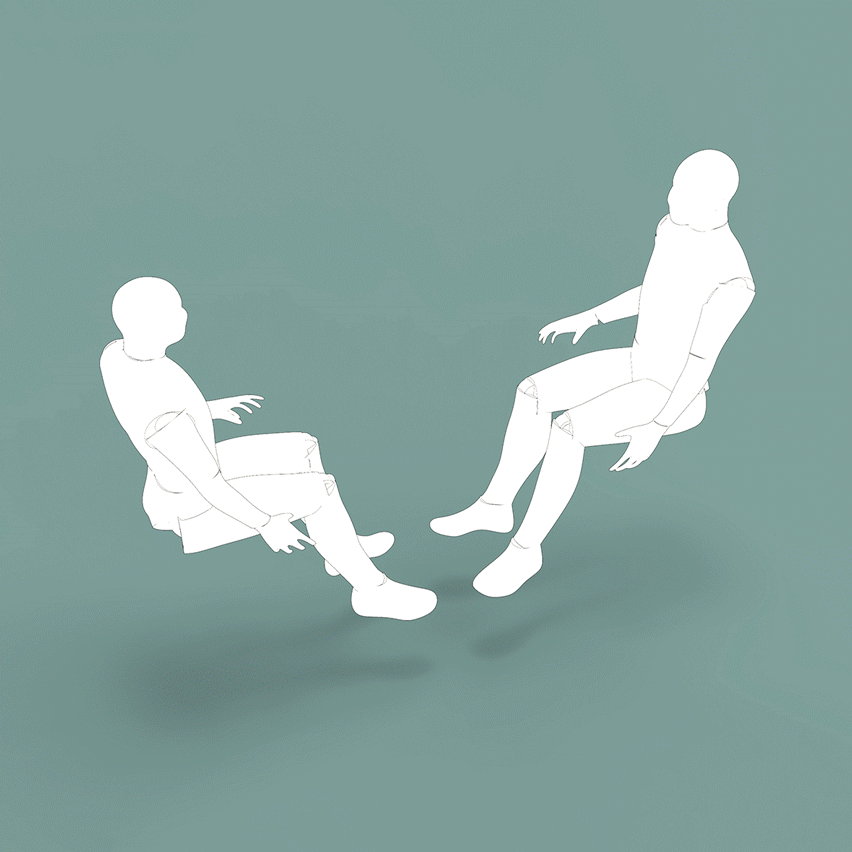
PriestmanGoode has designed an electric and autonomous concept vehicle that would be part of a transport network providing private trips for passengers and urban freight delivery.
The modular concept car was chosen as winner of a competition by autonomous network transit (ANT) company Dromos to imagine a vehicle that would run on its own dedicated road-like system.
Aiming to reimagine mass transit for the 21st century, Dromos' brief was to design a safe, reliable and affordable vehicle that focuses on modularity, sustainability and flexibility of use.
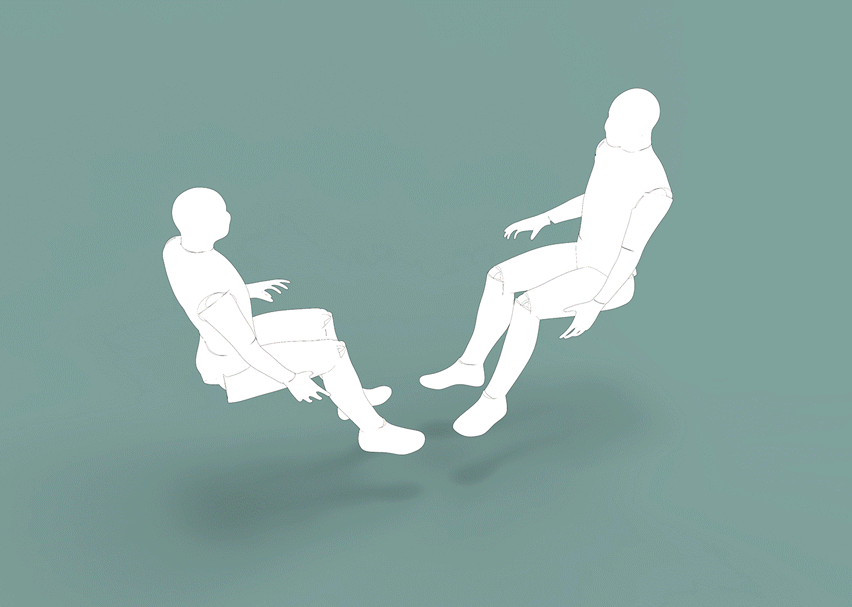
PriestmanGoode describes the automotive concept, which has a boxy design with smooth, curved edges, as "approachable minimalism".
"There are no extraneous elements, every detail serves a specific purpose," said the studio. "The design was created to be easy and efficient to manufacture, as well as maintain, and to enable maximum passenger comfort."
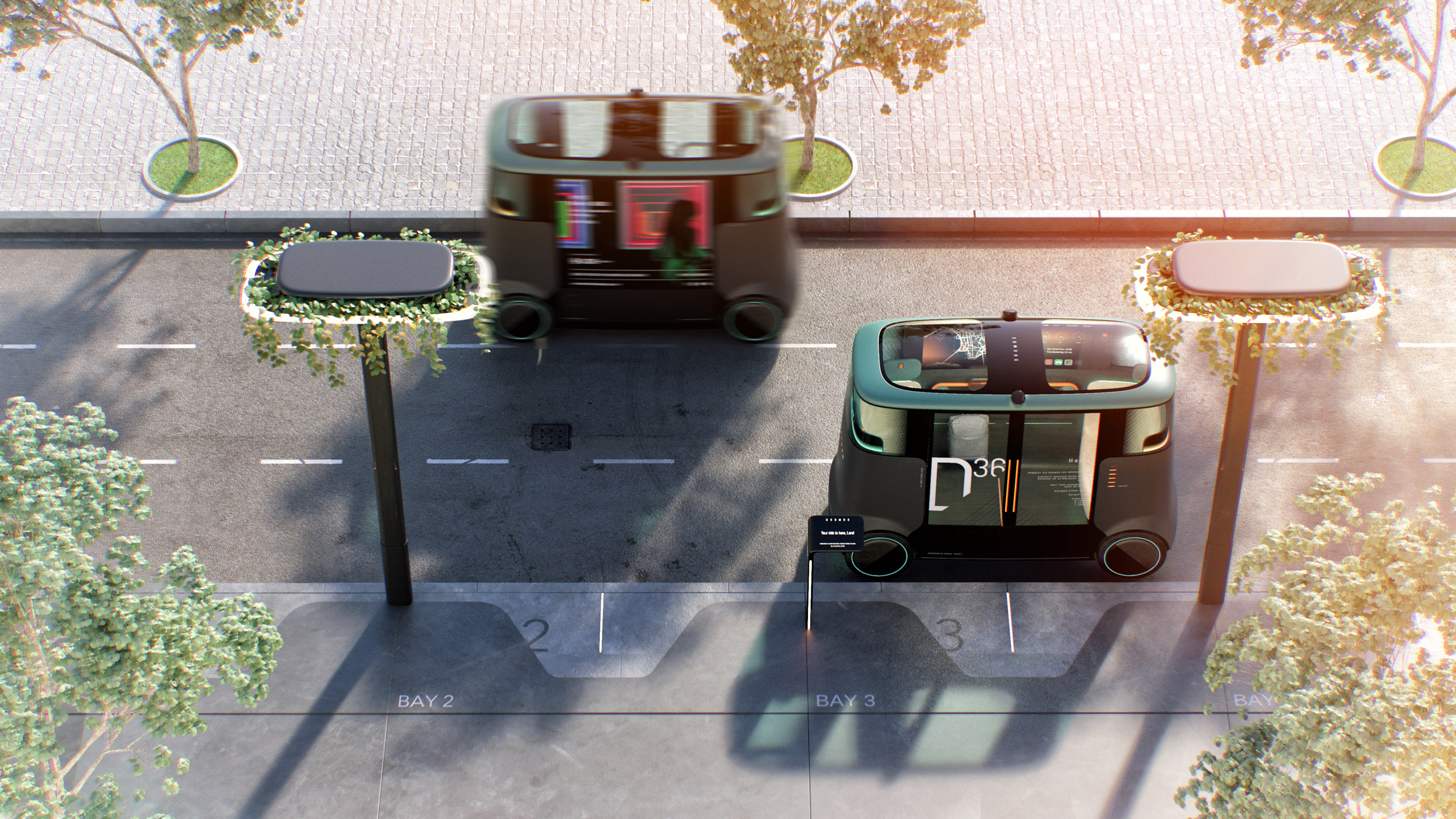
The studio designed two different vehicles: one for passenger use and one for cargo. Both feature the same rectangular, pod-like exterior, but the interior of each car can be adapted to suit its different uses.
The passenger car is designed to fit two adults and two children, while the freight vehicle prioritises space for packages and would only need to accommodate one rider – the courier.
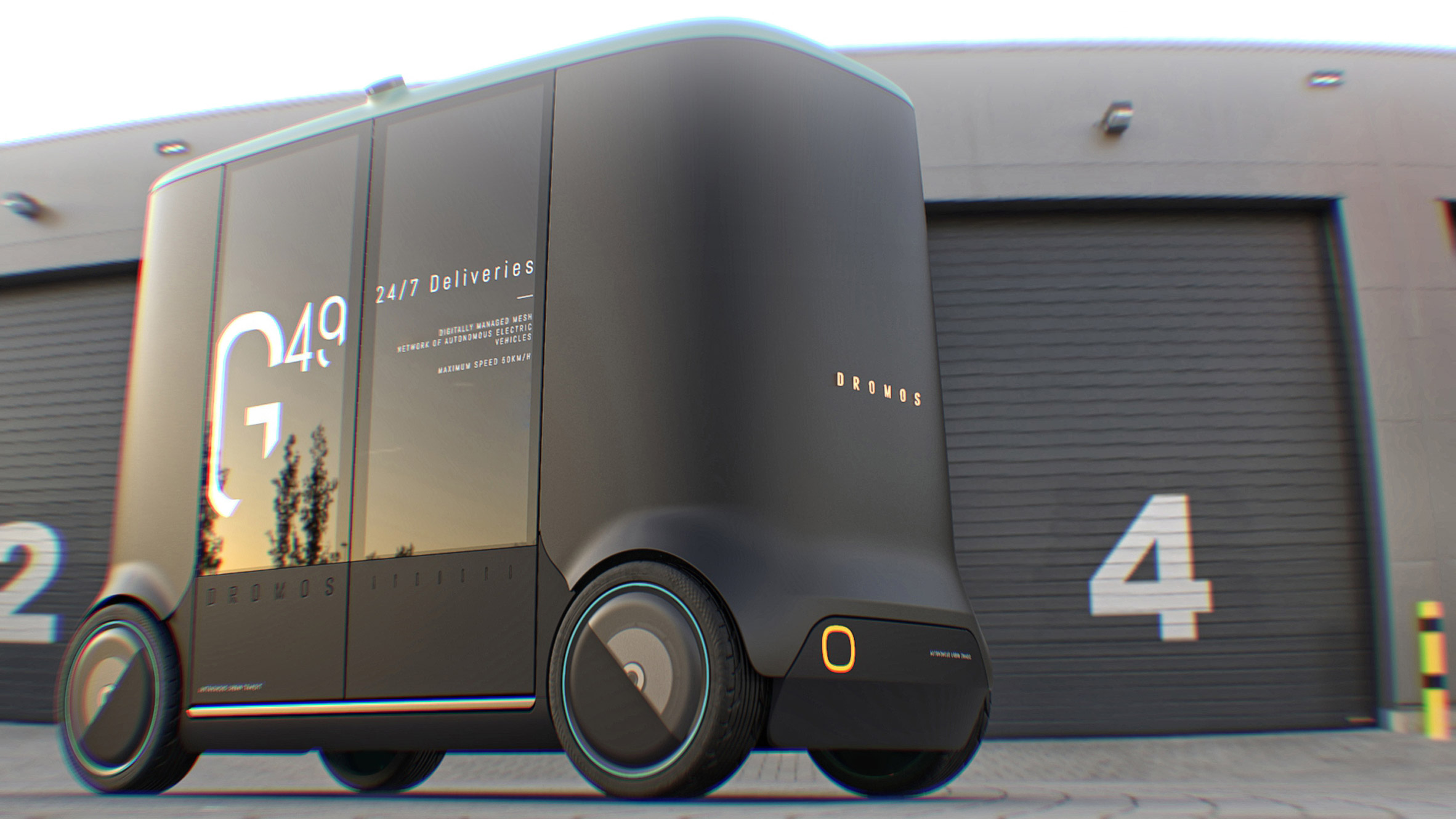
As PriestmanGoode's creative director Dan Window explained, he and the team took into consideration the varied requirements of different passengers when designing the vehicle.
"We thought about what types of passengers would use the vehicle, what they would carry, what they would do, what accessibility requirements they might have – it's been designed from the inside out."
"Every element has been considered to ensure that Dromos is flexible and suitable for a wide range of users," he added.
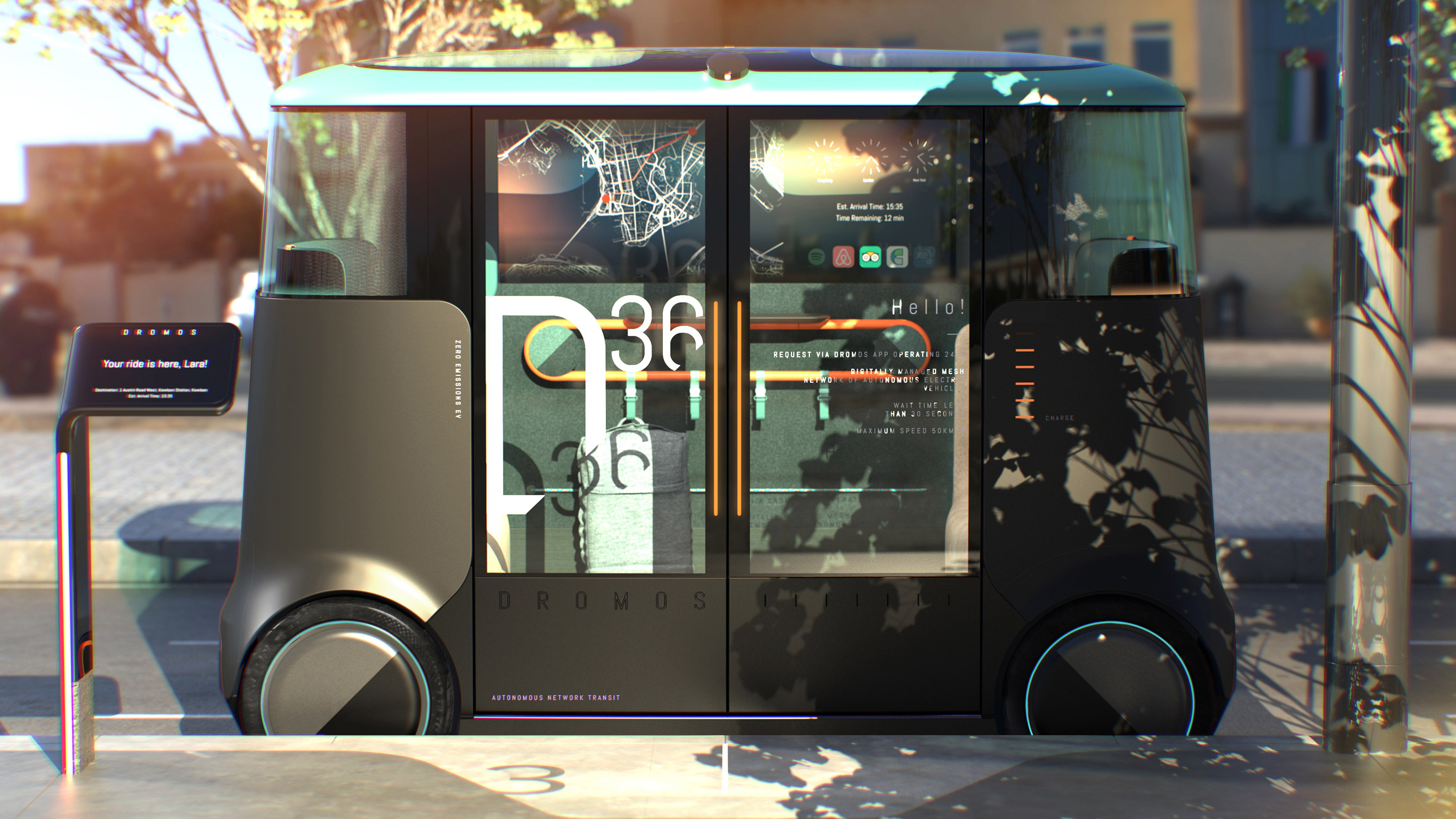
The vehicle is designed to have step-free access and extra-wide doors to allow easy entry for prams, wheelchairs and bikes.
It also features a tinted and patterned glass exterior with a reflective coating that works to reduce solar heat absorption, with a large skylight and expansive windows to allow views of the outside.
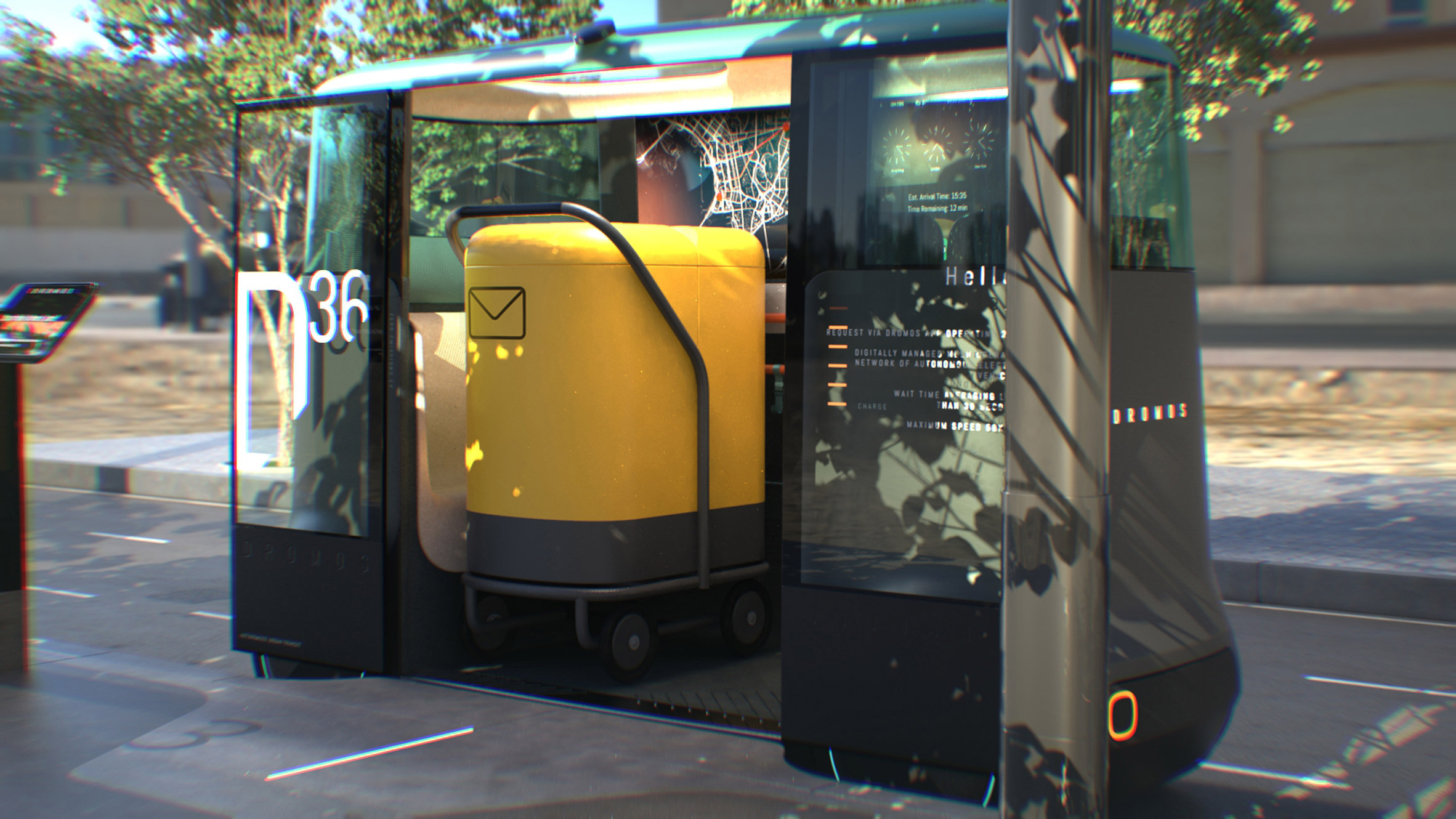
PriestmanGoode is still developing the colours, materials and finishes of the vehicle, taking into account people's increased desire for hygienic spaces as a result of the coronavirus pandemic.
While the studio couldn't divulge any specific textiles, it told Dezeen that it is looking into different types of anti-microbial materials such as copper and silver ions, which can be woven into fabrics or applied as surface coatings to existing products.
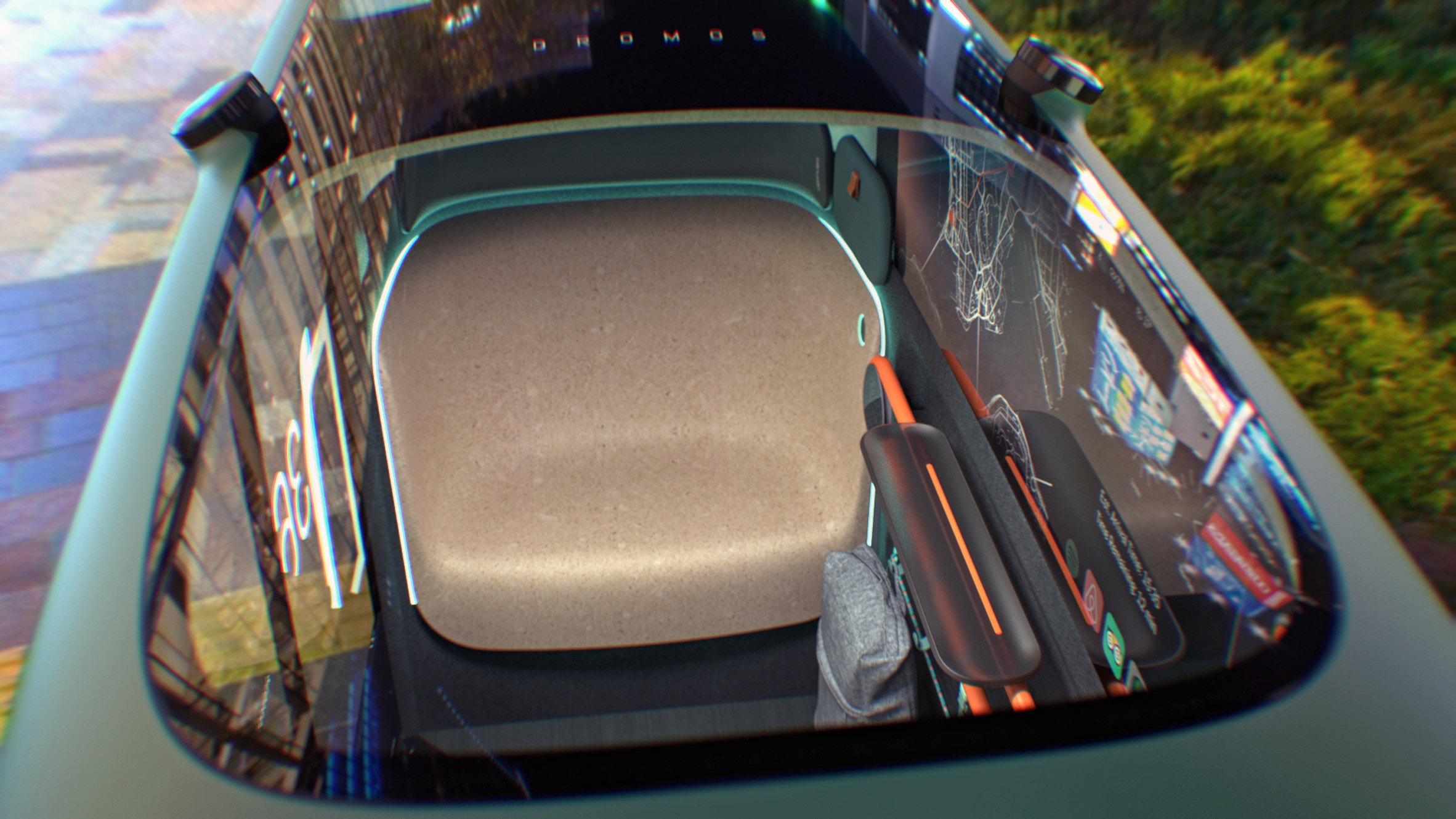
"The last few months have changed priorities in terms of materials and finishes," said Maria Kafel-Bentkowska, head of colour, material and finish at PriestmanGoode.
"Hygiene has really come to the fore, and we've been working with suppliers to work on finding ways we can satisfy stricter hygiene standards as well as keep sustainability at the forefront.
"This type of mass transit has become even more relevant now," added studio co-founder Paul Priestman.
"Not only does it answer the first and last mile problem, which is one of the key issues we're always trying to solve in public transport, but it's also particularly suitable for a post-pandemic world where passengers are more concerned about hygiene and safety."
"It enables us to maintain high volumes of passengers, whilst enabling social distancing, as passengers would share vehicles only with their own travel party," he continued.
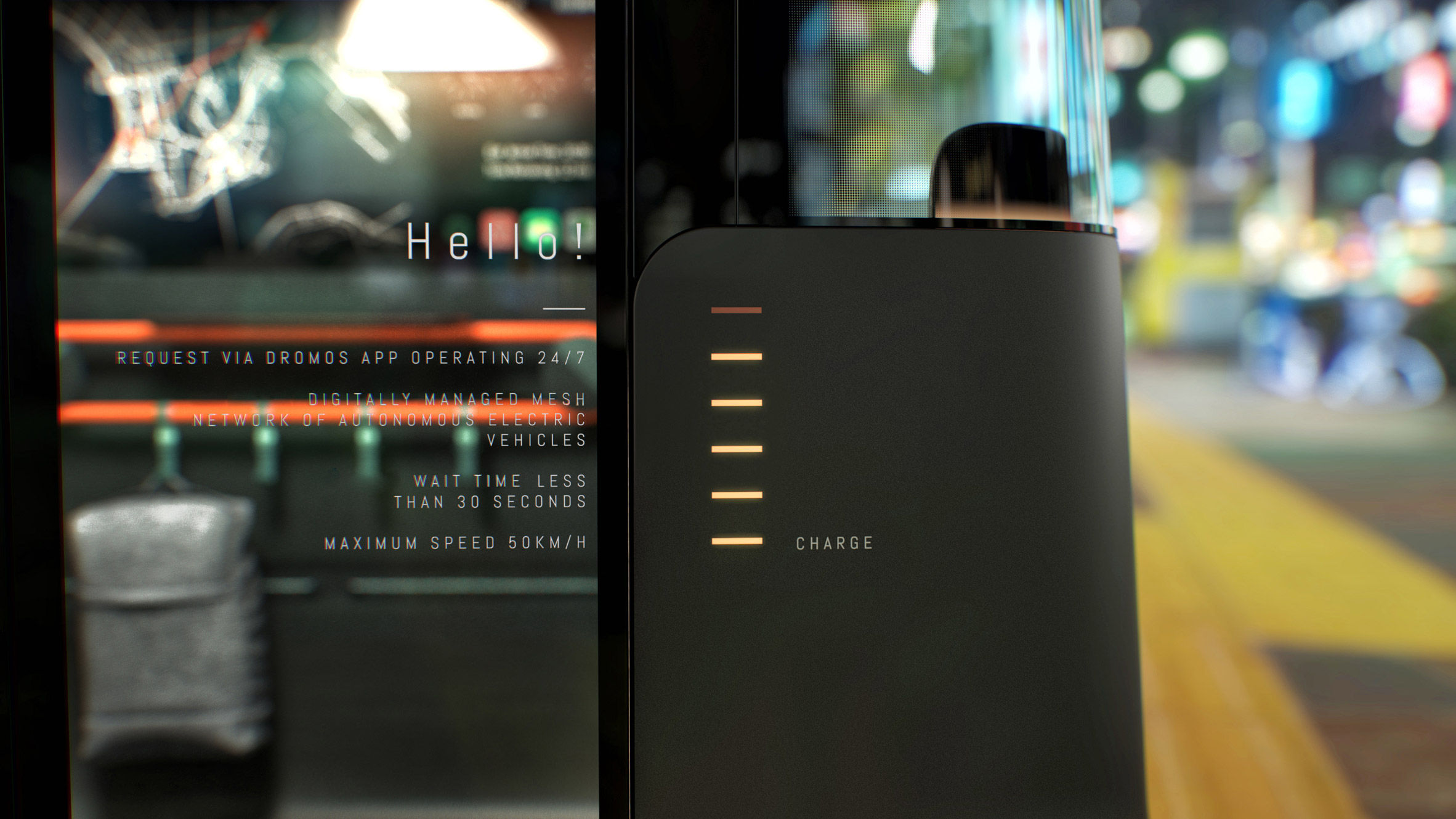
According to Dromos, its ANT will also have lower construction and operating costs than conventional mass transport systems such as metro, rail, LRT and BRT, as well as less space consumption and shorter construction times.
"This is really the first ANT that meets both convenience and capacity requirements," said Priestman. "It's the first system we've seen that offers true potential as a form of high-volume mass transit."
The Dromos vehicles will not run on normal roads, but on their own infrastructure. If made, they would drive directly into buildings and will feature nearby stops within up to 100 metres of any location.
The company has a test site where it is currently trialling vehicles and infrastructure designs and plans to have a functioning demonstration system by mid-2021.
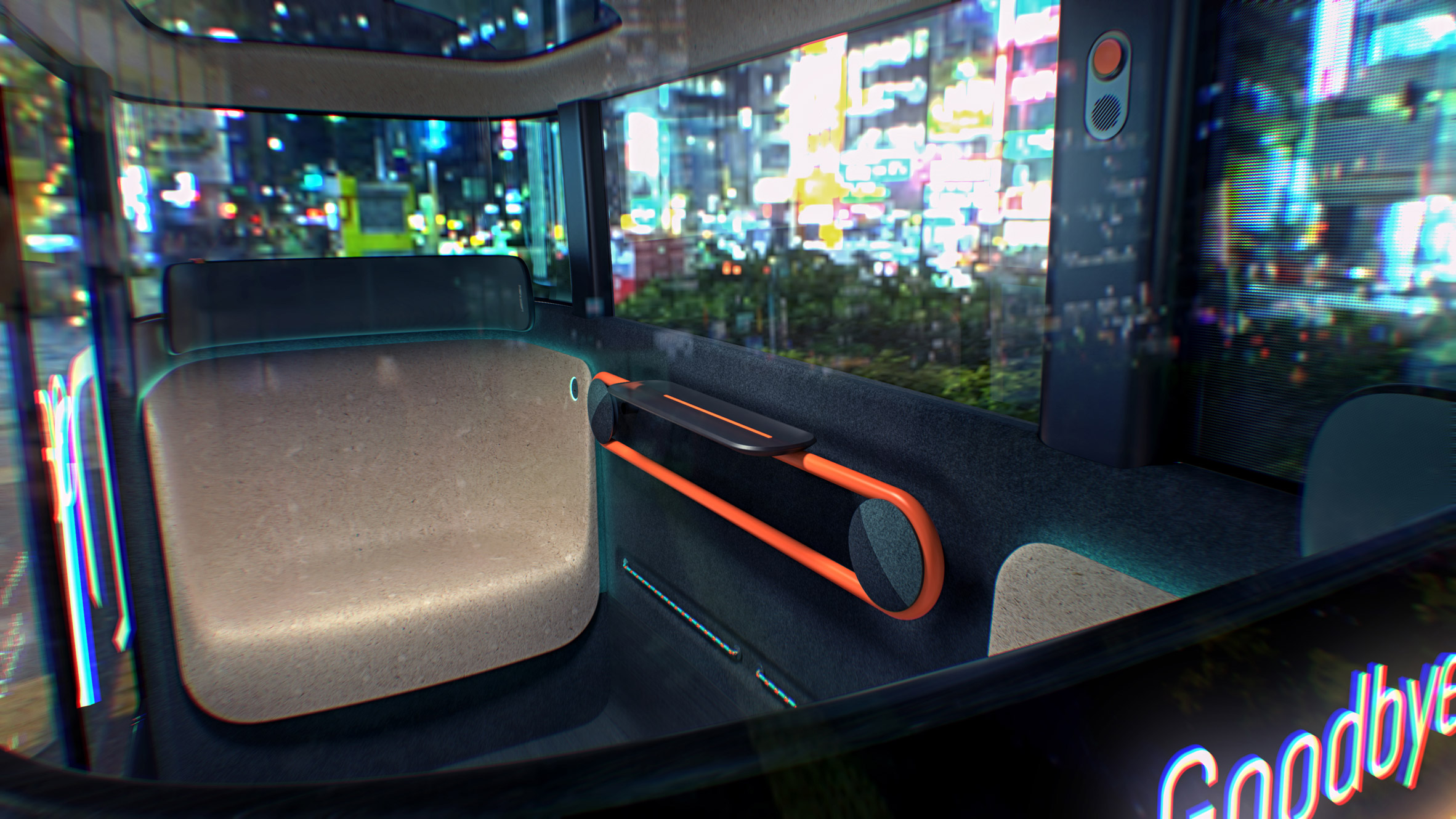
PriestmanGoode recently released its concept for aircraft interiors following the coronavirus pandemic, which have dirt trap-free surfaces and lights that change colour to inform passengers that the cabin is clean.
It has also developed a concept for a high-performance balloon and pressurised capsule that would take space tourists on a "cruise" around the stratosphere.
The post PriestmanGoode designs autonomous on-demand passenger and cargo vehicles for Dromos appeared first on Dezeen.
from Dezeen https://ift.tt/2FHjwQy

No comments:
Post a Comment